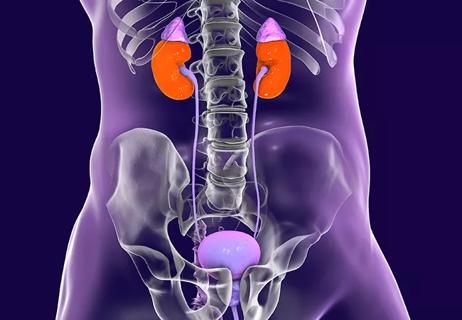Outcomes from a registry study reveal why closer monitoring may be warranted during the postpartum period

β-blocker therapies, specifically nadolol, were not associated with adverse maternal or fetal outcomes in pregnant patients with long QT syndrome (LQTS), according to a Cleveland Clinic-led study. However, some maternal cardiac events observed in the postpartum period suggest the importance of medication adherence and close monitoring during a time of enhanced vulnerability. Researchers published the study in Heart Rhythm.
Advertisement
Cleveland Clinic is a non-profit academic medical center. Advertising on our site helps support our mission. We do not endorse non-Cleveland Clinic products or services. Policy
While nadolol has emerged as a preferred β-blocker in the management of lethal arrhythmias in LQTS, there are few published data on its use in patients with LQTS during pregnancy. Further, there is some concern about the effects of β-blocker with respect to fetal outcomes, namely, the potential risk of intrauterine growth restriction (IUGR), neonatal hypoglycemia, and bradycardia.
“We commonly treat pregnant patients with LQTS, and it’s a conversation that arises between our service and the obstetrics team,” says Peter Aziz, MD, who leads the Inherited Arrhythmia Center at Cleveland Clinic Children’s.
“We are thinking about it from the perspective of managing heart rhythm and preventing a serious manifestation like polymorphic tachycardia,” he says. “They are thinking about it from the obstetrics perspective and the best way to manage the pregnancy and prevent any adverse neonatal outcomes as a result of prenatal exposure to the medication.”
This study arose from the authors’ desire to better understand the institutional experience of treating pregnant patients with LQTS, including practice variations and outcomes. Previous studies have focused only on maternal outcomes, or they predate the nadolol era.
The retrospective cohort was extracted from an internal Inherited Arrhythmia Database, for which there were 31 pregnant patients with LQTS and 68 pregnancies. The researchers included variables such as the type of β-blocker, the maternal cardiac event during pregnancy and in the first 12 months of postpartum, and neonatal outcomes.
Advertisement
In 28 patients, the LQTS diagnosis was not known or confirmed until after the time of pregnancy. But in those diagnosed (N = 27), nadolol was the most commonly prescribed medication during pregnancy and postpartum (N = 16).
The researchers found that among the 68 live-birth pregnancies, there were five cardiac events in four patients, and all occurred during the postpartum period. The cardiac events included syncope in four and ventricular tachycardia in one. They were all started on a β-blocker following their postpartum diagnosis.
There were no cardiac events in patients with confirmed LQTS who were actively receiving β-blocker therapy.
Nearly half of the neonatal cohort (20/43) were exposed to β-blockers during fetal life. Researchers found no statistically significant differences in IUGR (P = .08) between exposed versus unexposed fetuses. No hypoglycemia was reported in the treatment group, and only one had bradycardia, although this was seemingly related to laboring events. This infant later underwent genetic testing and was negative for LQTS.
These findings reinforce the protective role of β-blocker therapy in preventing an LQTS-related cardiac event in the patient, reflecting what was previously reported in the literature. However, the team acknowledges the need for prospective investigation into β-blocker use and its potential role in adverse maternal and fetal outcomes.
This study also highlights the importance of patient management in the postpartum period. Notably, the patient, who had yet to be diagnosed and therefore treated, experienced two syncopal episodes triggered by loud noises, suggesting that patients with LQTS may be at heightened risk or more vulnerable to triggers during this time.
Advertisement
Dr. Aziz adds, “With this in mind, in the setting of confirmed disease, the importance of medication management and patient adherence to treatment during the postpartum period cannot be overstated.”
Advertisement
Advertisement

Findings underscore the value of clinical monitoring in pregnant patients using SSRIs and SNRIs

Study explores role of single-dose drug in fostering the mother-infant dyad

Supporting birthing patients through newer tools and strategies

Multidisciplinary approach starts with early and regular screenings

New care path supports obstetric patients with bladder dysfunction

Diagnosis and treatment of MOG antibody-associated disease

New program brings ‘all hands on deck’ to reduce infant mortality

Findings hold lessons for future pandemics